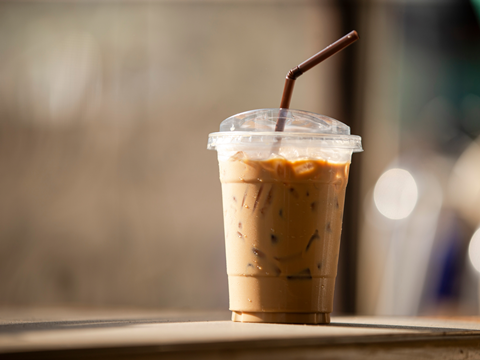
Apparently, a majority of the Netherlands’ House of Representatives (Tweede Kamer der Staten-Generaal) wants to lift the national surcharge on single-use plastic packaging, claiming it benefits businesses more than the planet and has not led to a decrease in plastic waste.
A single-use levy was imposed across the Netherlands in July 2023. Foodservice and retail outlets are expected to charge extra for plastic packaging and containers; the Ministry of Infrastructure and Water Management provides guidelines of €0.25 for a cup and €0.50 for a package.
However, establishments are permitted to determine their own prices, with most supermarkets said to charge only €0.01 for all packaging types. Regardless of its size, the surcharge must be listed separately on a receipt.
Establishments must also offer a reusable alternative or allow consumers to bring their own containers from home. The policy is intended to cut down on plastic waste and drive the adoption of sustainability-minded packaging solutions.
Nieuwsuur reports that the levy is not thought to have affected the amount of plastic waste, nor the rates at which consumers bring reusable containers into establishments. Around 19 million items of plastic food packaging are thought to be discarded by Dutch consumers every day.
“I still come across just as many disposable cups as before,” Zwerfinator litter analyst Dirk Groot told Nieuwsuur. “The only thing that stands out is that more than half of these cups now have cardboard lids, while in the past they were all made of plastic.”
From 1st January 2026, a mandatory surcharge of €0.25 per container is set to apply. Businesses have criticized this fixed rate as being too high – running the risk of scaring consumers away.
Now NL Times suggests that a majority in the House of Representatives wants to scrap the measure altogether. Martin Buijsse from the People’s Party for Freedom and Democracy (VVD) argues that the surcharge puts a burden on consumers amidst a cost-of-living crisis and “only leads to more rules and bureaucracy for the entrepreneur” with little benefit for the environment.
Politicians have argued that the money raised isn’t directed into sustainability initiatives, with Buijsse arguing that “the proceeds of the levy simply go to the snack bar owner, and they do nothing with it.”
Meanwhile, Jimmy Dijk from the Socialist Party (SP) asserts that the responsibility should be shifted away from the consumer and to the producer, “where it belongs, instead of saddling [consumers] with a nuisance tax.”
However, Jeroen Dagevos, head of programs at the Plastic Soup Foundation, counters that a higher levy could lead to a change in behaviour, pointing out a 70% decrease in plastic bag usage after their prices increased.
In a previous NL Times article, University of Groningen associate professor Hans Risselada expressed skepticism that the levy would influence consumer behaviour.
“Firstly, the levy is focused on costs, without always being linked to a sustainable alternative,” he said. “The consumer does not always have a choice.
“In addition, the levy is levied differently everywhere, so it is confusing for the consumer.
He believed that a set surcharge would garner better results – as would government campaigns to raise awareness, as “consumers are not sure what the idea behind [the levy] is, where the money goes and what happens to it.”
He added that consumers could lead by example and influence each other to take up reusable packaging solutions and establish a “new normal”.
However, trade association Koninklijke Horeca Nederland described adjustment to the levy as “quite a complicated process”, emphasizing that businesses should be given time to implement the new measures without facing fines.
Chris Jansen, PVV state secretary for Transport and the Environment, expressed no intention to lift the levy in past debates.
The development comes after US President Donald Trump decided to rescind the previous administration’s phase-out of single-use plastics across the federal government agencies, describing the measure as “ridiculous”. Some consumers were relieved to avoid the functional shortcomings of paper straws, while others felt that a return to plastic failed to consider other materials with potential environmental benefits.
In other news, the Dutch Government declared Notpla’s seaweed-based packaging plastic-free in line with the EU Single-Use Plastics Directive back in 2023. With this official definition, the solution was hoped to help replace a minimum of 15 million single-use plastic packaging units in the Netherlands.
If you liked this story, you might also enjoy:
Reuse vs. single use – which is better for the environment?
Sustainable Innovation Report 2025: Current trends and future priorities
What can the world learn from South Korea’s world-leading performance in plastics circularity?














No comments yet